#unfairandlovely: A new social campaign celebrates dark skin
- Published
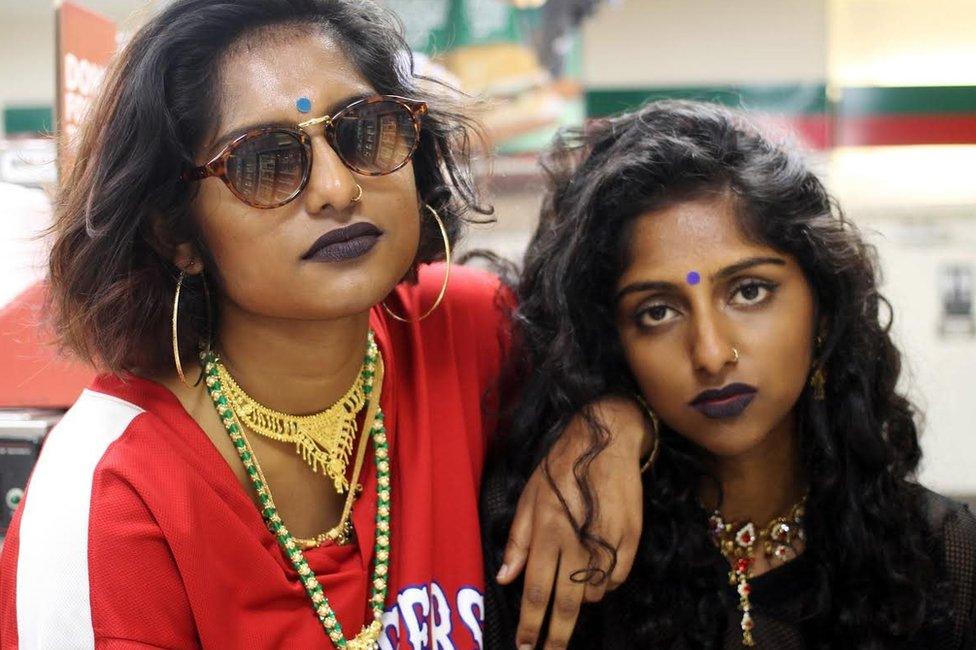
Mirusha Yogarajah (left) and Yanusha Yogarajah are of Tamil descent
A new global campaign on social media against colourism - #unfairandlovely - is challenging the widely-held belief in many parts of the world that fair skin is the most attractive.
In matrimonial advertisements in South Asian countries, women with "fair complexion" are in high demand, and millions of men and women around the world have resorted to bleaching their skin.
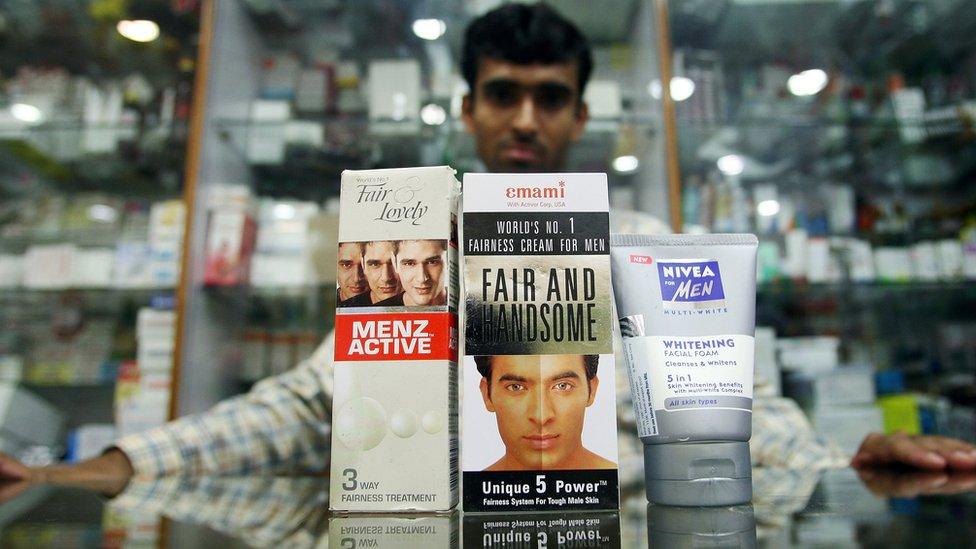
Skin whitening creams are big business in India
In recent years, new creams have been introduced to lighten armpit hair and even female genitals.
And their manufacturers advertise their wares by preying on basic human insecurities - consumers are encouraged to believe that lightening their skin tone a shade or two will enable them to win 'better' jobs and spouses and generally improve the quality of their lives.
Over the years, campaigners have tried to challenge this belief - they argue that beauty is more than skin deep and that dark is beautiful, external too.
In recent weeks, three students from the University of Texas, Austin, have launched a new campaign which has become a talking point on social media around the world.
It was inspired by a project that Pax Jones, a 21-year-old black student at the University of Texas in Austin, began in December.
She created a photo series, external featuring stunning images of her South Asian classmates, sisters Mirusha and Yanusha Yogarajah.
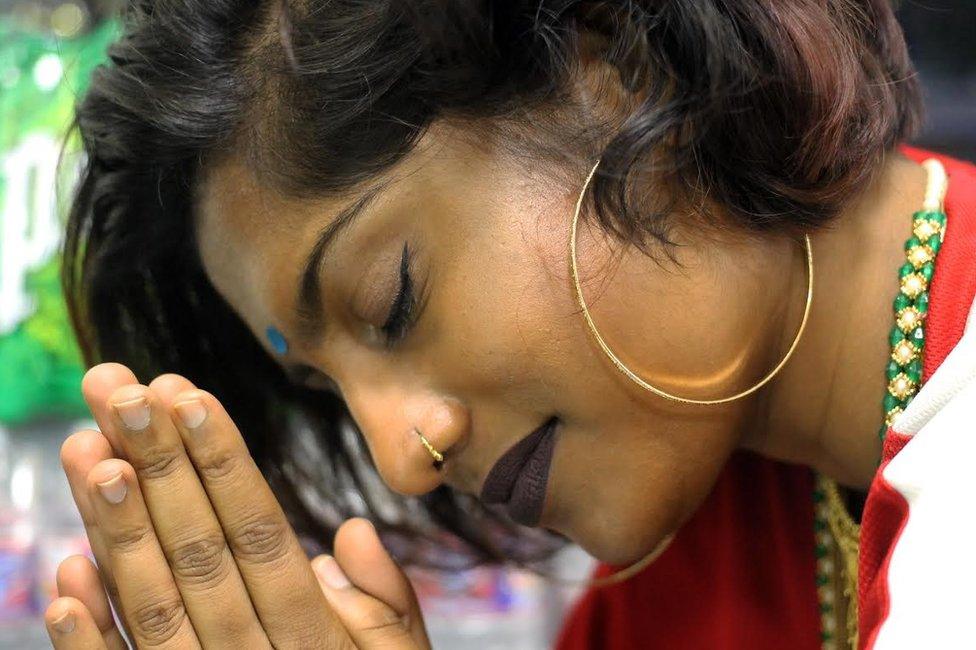
Mirusha Yogarajah says colourism is rampant within the South Asian community
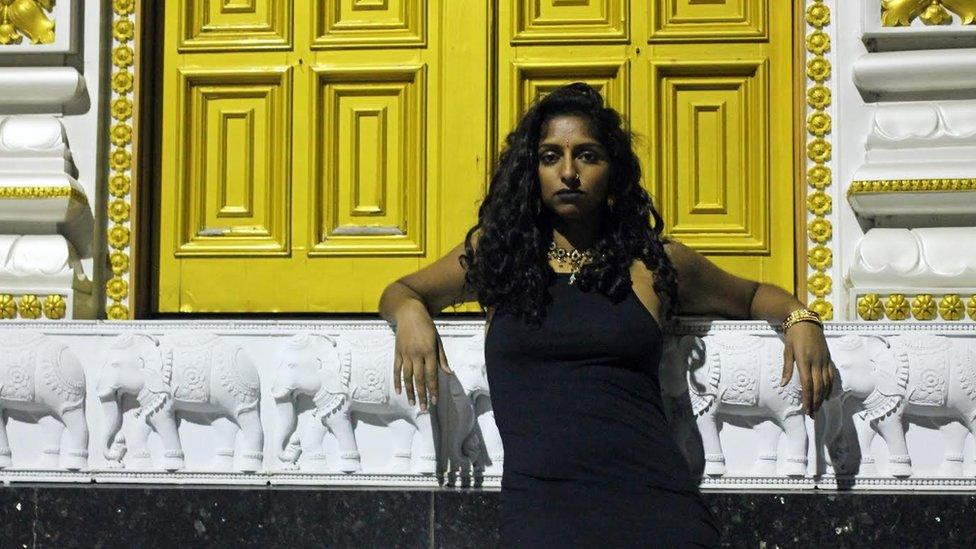
Pax Jones has created a photo series featuring stunning images of her South Asian classmates, sisters Mirusha and Yanusha Yogarajah
"Our goal was to combat colourism and the under-representation of people of colour in the media. We were trying to challenge the way colourism permeates our lives," Ms Jones told the BBC over the phone from Austin.
The series, called "Unfair & Lovely", became a hit and inspired the hashtag #unfairandlovely - named after the hugely popular Indian skin-lightening cream Fair and Lovely.
The campaign, which asked dark-skinned people to put their photos on social media, generated lively discussions on Twitter and Facebook and saw nearly 1,000 people posting their photos, external on Instagram.
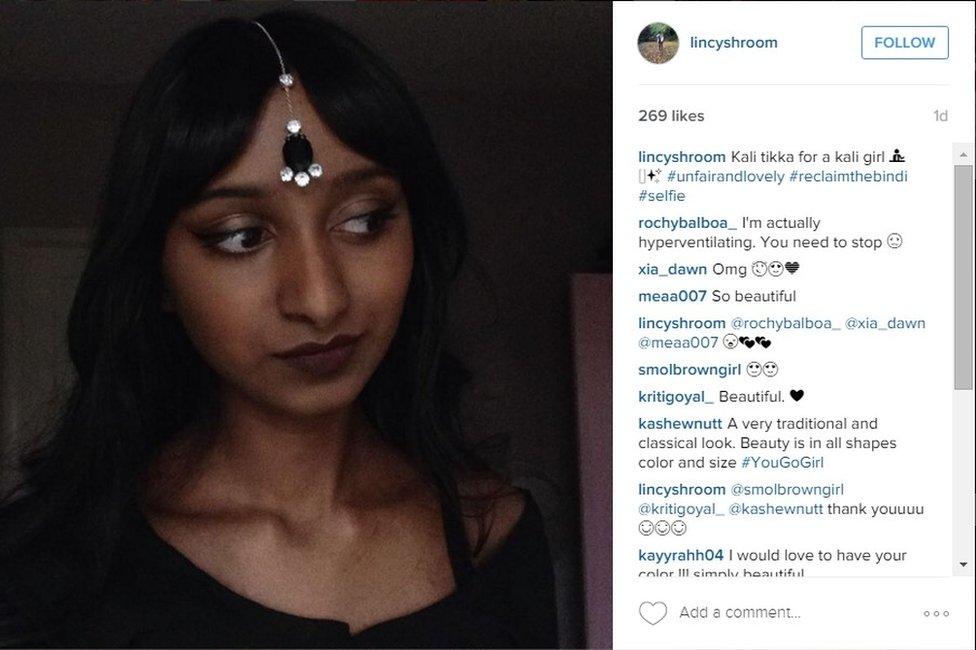
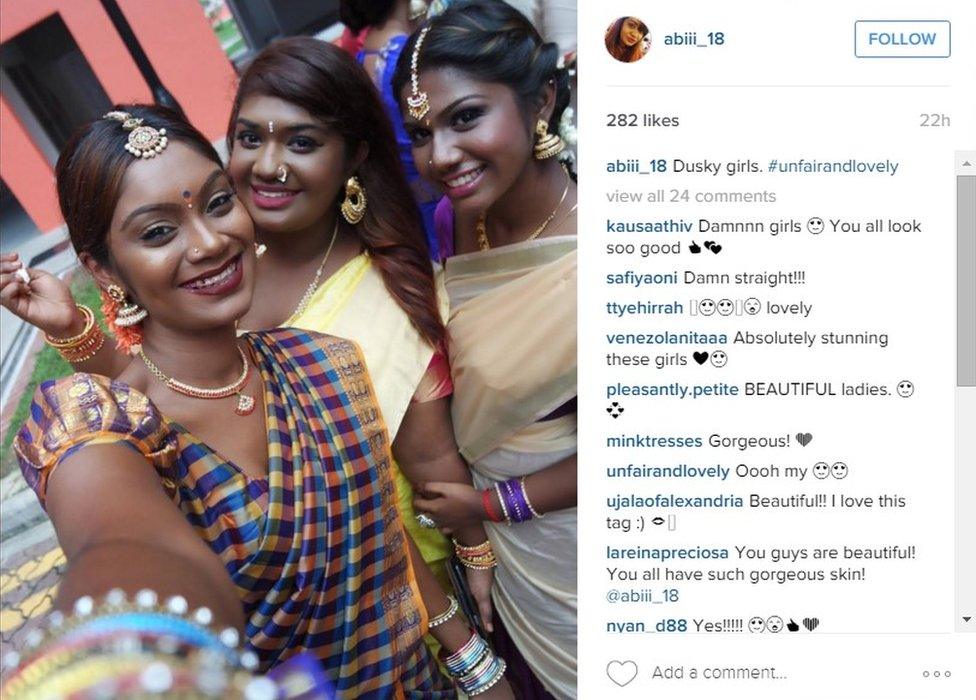
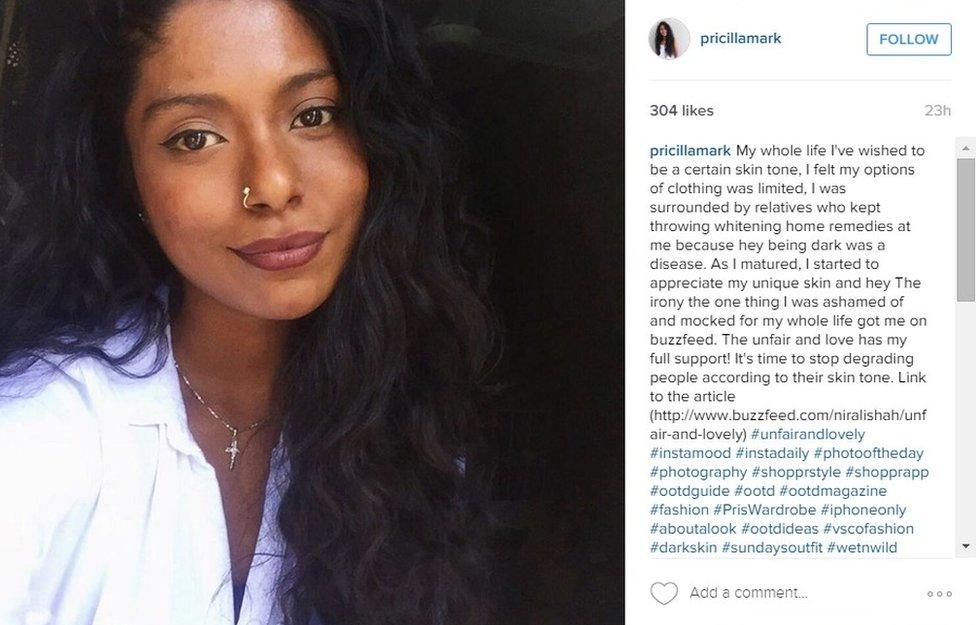
Mirusha Yogarajah told the BBC she readily agreed to be a part of the campaign because colourism is rampant within the South Asian community.
"Most of us are advised not to go out in the sun because we'll get darker. It's as if darkness is undesirable.
"In college, I was abused by a South Asian person who had lighter skin. And someone once threw a bleach balloon at me."
Such incidents, Ms Yogarajah says, are deeply humiliating.
"At the time they happened, it was really hard for me to see myself as valuable. It is difficult to understand why people will dehumanise you for the way you look. I felt very vulnerable," she says.
Ms Jones, who says she has been ridiculed for her "hair texture" and "wide nose", agreed.
"We wanted to start a conversation and I think we have succeeded in that".
- Published6 June 2012
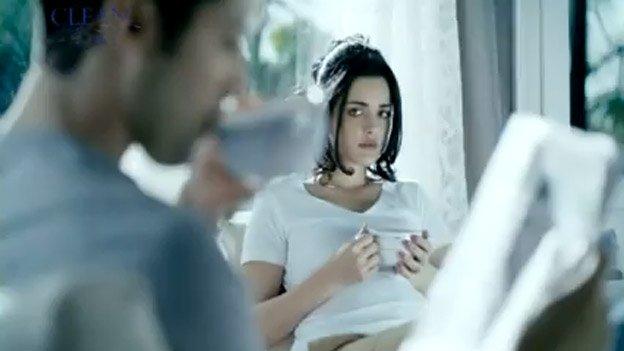
- Published20 March 2014
